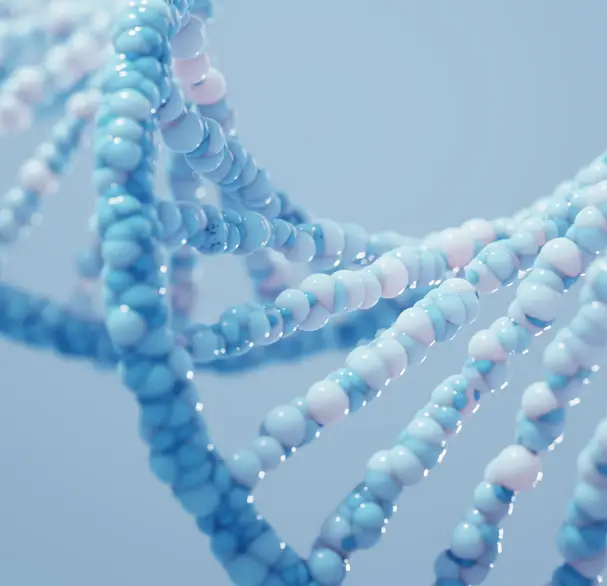When living with Lynch syndrome, many individuals focus on screening, surveillance, and sometimes preventive surgery to manage their cancer risk. But growing research suggests there may be another powerful tool to support your health: your diet.
While no food or supplement can replace medical care, certain nutrients and dietary habits may offer protective effects, potentially influencing how inherited risk factors like LS interact with the body. Here’s what we’re learning about the connection between nutrition and hereditary cancer risk.
The Science Behind Diet & Hereditary Cancer Risk
In Lynch syndrome, most dietary advice has focused on colorectal cancer. But a landmark 20-year study from Newcastle University is shifting that focus.
Researchers found that a daily dose of resistant starch (a type of fiber naturally found in foods like beans, oats, green bananas, and cooked pasta) reduced the incidence of non-colorectal cancers by 50% in people with LS. This included cancers in areas like the upper digestive tract, pancreas, and bile ducts.
This long-term data is one of the first to suggest that a simple dietary supplement could influence cancer risk well beyond the colon, adding a promising layer to preventive care for those with inherited cancer syndromes.
RELATED: Lynch Syndrome and Colon Cancer: What You Need to Know
It’s especially notable that the protective effect appeared years after supplementation ended, implying that diet may influence long-term cancer pathways, not just short-term outcomes. While more research is needed to understand exactly how resistant starch works, these theories suggest it may help by altering gut microbiota and reducing inflammation throughout the body, which are both factors known to influence cancer development.
The Role of Inflammation and Insulin Resistance
Another area of research has focused on how diet influences systemic inflammation and insulin resistance, both of which are associated with higher cancer risks. Diets high in processed foods, added sugars, and saturated fats may elevate inflammatory markers, while plant-forward diets rich in fiber, antioxidants, and phytonutrients can help reduce inflammation.
For those with LS, managing inflammation may be especially important. A study in Cancer Epidemiology found that adherence to anti-inflammatory diets may help support cellular environments less prone to mutation—a particularly relevant goal for those with a genetic predisposition to cancer.
Chronic inflammation doesn’t always show obvious symptoms, but it can be quietly active in the background, altering cellular environments and making them more susceptible to mutations. In individuals with LS, who already have a genetic predisposition to cancer, reducing this “hidden fire” through lifestyle choices like diet becomes even more critical.
Fiber, Phytonutrients, & Hormonal Balance
Fiber-rich foods not only support digestive health but also help regulate blood sugar levels, reduce insulin spikes, and improve satiety, which are factors that all contribute to metabolic balance and may reduce cancer risk. Vegetables, fruits, whole grains, and legumes are high in fiber and also deliver protective compounds such as flavonoids and carotenoids, which may help the body neutralize harmful free radicals and support immune function.
Plant-based diets have also been associated with lower body fat, and maintaining a healthy weight is a key factor in reducing cancer risk across the board.
Excess fat tissue, especially in the abdominal region, isn’t just stored energy. It acts like an active organ, producing hormones and inflammatory molecules that may raise cancer risk. By adopting a fiber-rich, plant-heavy diet, people with LS can support hormone balance while also creating a less cancer-promoting internal environment.
Practical Tips for Building a Cancer-Conscious Diet
While every individual’s needs are different, here are some practical, research-aligned dietary tips for those living with LS:
- Incorporate resistant starch: Try foods like green bananas, lentils, cooked potatoes, and barley to naturally increase your intake. Talk to your doctor before taking supplements.
- Prioritize plants: Fill your plate with a variety of colorful vegetables and fruits every day.
- Go for whole grains: Swap white rice and bread for fiber-rich alternatives like oats, quinoa, and brown rice.
- Limit processed foods: Reduce your intake of processed meats, sugary snacks, and highly refined carbs.
- Balance fats: Choose sources of healthy fats such as avocados, nuts, and olive oil over saturated fats and trans fats.
- Stay hydrated and active: Regular physical activity and hydration go hand-in-hand with dietary efforts to support overall health and reduce cancer risk.
A Complementary Approach, Not a Cure
It’s important to remember that while diet may support your body and potentially reduce cancer risk, it is not a substitute for LS-specific medical care. Surveillance, genetic counseling, and preventive strategies remain the cornerstone of LS management. But by making thoughtful choices about what goes on your plate, you may be able to further tip the scales in your favor.
At Lynsight, we offer clear information and support to help you make informed decisions about testing, prevention, and living well with LS. Check out our resources here.


